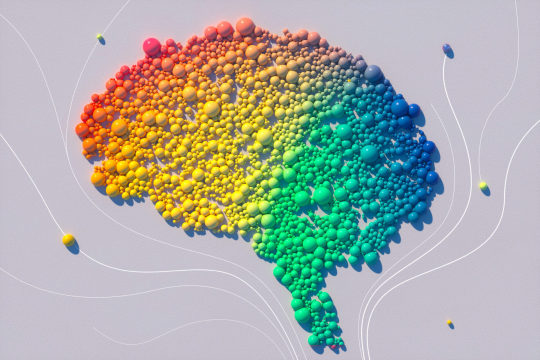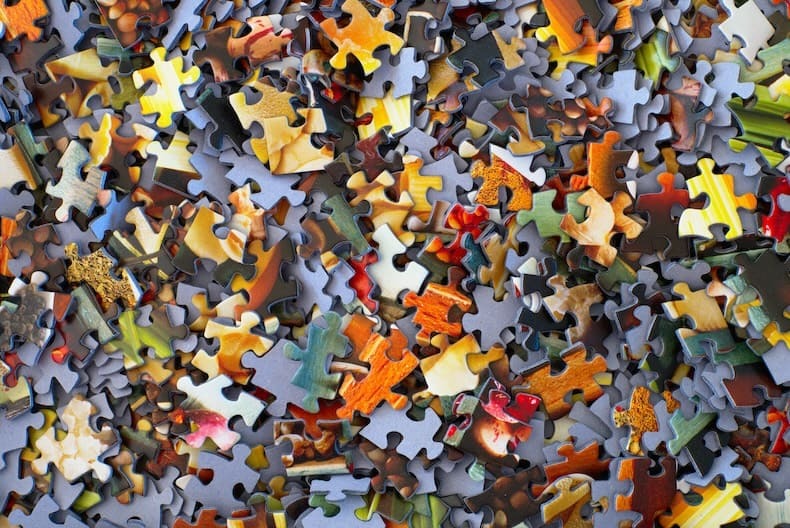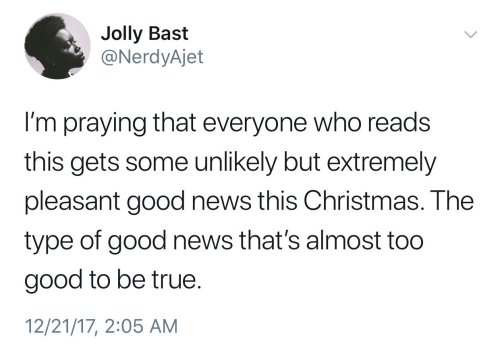I Simply Adore Her!
I simply adore her!





smol plant witch at the supermarket with her mandrake familiar… finally finished! phew… @@
if people like the character I might do some character sketches…
More Posts from Writingwickedwitch and Others
By the way, you can improve your executive function. You can literally build it like a muscle.
Yes, even if you're neurodivergent. I don't have ADHD, but it is allegedly a thing with ADHD as well. And I am autistic, and after a bunch of nerve damage (severe enough that I was basically housebound for 6 months), I had to completely rebuild my ability to get my brain to Do Things from what felt like nearly scratch.
This is specifically from ADDitude magazine, so written specifically for ADHD (and while focused in large part on kids, also definitely includes adults and adult activities):

Here's a link on this for autism (though as an editor wow did that title need an editor lol):

Resources on this aren't great because they're mainly aimed at neurotypical therapists or parents of neurdivergent children. There's worksheets you can do that help a lot too or thought work you can do to sort of build the neuro-infrastructure for tasks.
But a lot of the stuff is just like. fun. Pulling from both the first article and my own experience:
Play games or video games where you have to make a lot of decisions. Literally go make a ton of picrews or do online dress-up dolls if you like. It helped me.
Art, especially forms of art that require patience, planning ahead, or in contrast improvisation
Listening to longform storytelling without visuals, e.g. just listening regularly to audiobooks or narrative podcasts, etc.
Meditation
Martial arts
Sports in general
Board games like chess or Catan (I actually found a big list of what board games are good for building what executive functioning skills here)
Woodworking
Cooking
If you're bad at time management play games or video games with a bunch of timers
Things can be easier. You might always have a disability around this (I certainly always will), but it can be easier. You do not have to be this stuck forever.
@bird-lord1993 I am trying to contain myself from the sheer emotions these gifs instill in me







peter falk as charlie adamo in machine gun mccain (1969)
Do any of u have decent recipes that are like 5 ingredients (not including spices) and take 45 mins or less to prepare i gotta stop eating sandwiches for dinner

hey everyone! it’s been a while since i made a masterpost, and i recently found some good health-related apps on the play store that i thought to consolidate into a post.
all these apps are available for both ios and android users! i’ve also grouped similar apps together.
fyi: these apps are not intended to replace your therapist/counselor – they only act as an aid. the apps listed here are those that seemed credible enough and had good ratings on the play store. some may help you and some might not. since i don’t have depression or panic attacks, i can’t speak for the efficacy of some of the apps here.
For stress, depression, anxiety, or panic attacks:
Rootd: exercises to help with anxiety and panic attacks, as well as lessons understand anxiety. it also includes emergency contact if you need help and a personal stats page.
Self-help Anxiety Management (SAM): exercises to help you manage your anxiety. you can also build your ‘anxiety tookit’ and chat with other SAM users.
PanicShield: for those who have panic attacks. it has a breathing tool to calm you down, information about panic attacks, and two techniques to train your mind to have fewer panic attacks (based on two types of therapy).
MoodSpace: short, interactive mood workouts that may help treat depression.
InnerHour: a self-help app for stress, anxiety or depression. it has small daily tasks, helps you deal with distressing situations, helps control your stressful thinking patterns, and has a relief box.
Moodpath: an interactive two-week depression and anxiety screening program that tracks your emotional and physical wellbeing and generates a personalized mental health assessment that you can discuss with therapists.
Calm Harm: tasks to help you resist or manage the urge to self-harm.
To generally improve your life:
Youper: conversations with a bot to improve your mood and emotional health. it also has mindfulness and meditation exercises, a mood tracker, journal and symptoms tracker.
Wysa: similar to Youper, Wysa is a chatbot who reacts to the emotions you express to help with anxiety, stress, low mood, anger or sleep issues.
Primed Mind: a life coach to help you reach your personal goals and improve yourself. it can help you build habits, calm down, fall asleep quickly, and study effectively.
Headspace: meditation and mindfulness exercises
Just Rain: a soothing audiovisual rain simulator where you can control the degree of rain sounds.
I love the lettering on this. I love the flow and placement. The use of color. The character illustrations. It’s amazing how we tell something can affect a story. I also want to add it’s thanks to online interactions that a lot of web comics are going with a scrolling vertical kind of layout in mind. I wonder how someone would try to adapt this ina more traditional horizontal graphic novel sort of way.





















“Tell me about the Spear of Selene.”
Person A: hey why do you look so tired and have bite marks all over your neck?
Person B, who got fucked within an inch of their life the night before and is about to invent vampires: oh haven’t you heard?
I've been reading Iron Flame by Rebecca Yarros, and it's gotten me thinking about how worldbuilding is multilayered, and about how a failure of one layer of the worldbuilding can negatively impact the book, even if the other layers of the worldbuilding work.
I don't want to spoil the book for anyone, so I'm going to talk about it more broadly instead. In my day job, one of the things I do is planning/plan development, and we talk about plans broadly as strategic, operational, and tactical. I think, in many ways, worldbuilding functions the same way.
Strategic worldbuilding, as I think of it, is how the world as a whole works. It's that vampires exist and broadly how vampires exist and interact with the world, unrelated to the characters or (sometimes) to the organizations that the characters are part of. It's the ongoing war between Earth and Mars; it's the fact that every left-handed person woke up with magic 35 years ago; it's Victorian-era London except every twelfth day it rains frogs. It's the world, in the broadest sense.
Operational worldbuilding is the organizations--the stuff that people as a whole are doing/have made within the context of that strategic-level world. For The Hunger Games, I'd probably put the post-apocalyptic nature of the world and even the existence/structure of the districts as the strategic level and the construct of the Hunger Games as the operational level: the post-apocalyptic nature of the world and the districts are the overall world that they live in, and the Hunger Games are the construct that were created as a response.
Tactical worldbuilding is, in my mind, character building--and, specifically, how the characters (especially but not exclusively the main characters) exist within the context of the world. In The Hunger Games, Katniss has experience in hunting, foraging, wilderness survival, etc. because of the context of the world that she grew up in (post-apocalyptic, district structure, Hunger Games, etc.). This sort of worldbuilding, to me, isn't about the personality part of the characterization but about the context of the character.
Each one of these layers can fail independently, even if the other ones succeed. When I think of an operational worldbuilding failure, I think of Divergent, where they took a post-apocalyptic world and set up an orgnaizational structure that didn't make any sense, where people are prescribed to like 6 jobs that don't in any way cover what's required to run a modern civilization--or even to run the society that they're shown as running. The society that they present can't exist as written in the world that they're presented as existing in--or if they can, I never could figure out how when reading the book (or watching the film).
So operational worldbuilding failures can happen when the organizations or societies that are presented don't seem like they could function in the context that they are presented in or when they just don't make any sense for what they are trying to accomplish. If the story can't reasonably answer why is this organization built this way or why do they do what they do then I see it as an organizational worldbuilding failure.
For tactical worldbuilding failures, I think of stories where characters have skillsets that conveniently match up with what they need to solve the problems of the plot but don't actually match their background or experience. If Katniss had been from an urban area and never set foot in a forest, it wouldn't have worked to have her as she was.
In this way (as in planning), the tactical level should align with the operational level which should align with the strategic level--you should be able to trace from one to the next and understand how things exist in the context of each other.
For that reason, strategic worldbuilding failures are the vaguest to explain, but I think of them like this: if it either 1) is so internally inconsistent that it starts to fall apart or 2) leaves the reader going this doesn't make any sense at all then it's probably failed.
-
 sl33pylittl3 liked this · 5 months ago
sl33pylittl3 liked this · 5 months ago -
 thescaliforniagentleman reblogged this · 5 months ago
thescaliforniagentleman reblogged this · 5 months ago -
 thescaliforniagentleman liked this · 5 months ago
thescaliforniagentleman liked this · 5 months ago -
 dour-baby reblogged this · 1 year ago
dour-baby reblogged this · 1 year ago -
 iwillhaveamoonbase liked this · 2 years ago
iwillhaveamoonbase liked this · 2 years ago -
 koshka-the-feline-fatale liked this · 2 years ago
koshka-the-feline-fatale liked this · 2 years ago -
 dirtpudding reblogged this · 2 years ago
dirtpudding reblogged this · 2 years ago -
 adollchild liked this · 2 years ago
adollchild liked this · 2 years ago -
 sweetie-bunn liked this · 2 years ago
sweetie-bunn liked this · 2 years ago -
 meowlovesmeowing liked this · 2 years ago
meowlovesmeowing liked this · 2 years ago -
 pinksakuraprincess liked this · 2 years ago
pinksakuraprincess liked this · 2 years ago -
 peculiar--princess reblogged this · 2 years ago
peculiar--princess reblogged this · 2 years ago -
 heavenlydolly liked this · 2 years ago
heavenlydolly liked this · 2 years ago -
 ruyalarincadisi reblogged this · 2 years ago
ruyalarincadisi reblogged this · 2 years ago -
 ruyalarincadisi liked this · 2 years ago
ruyalarincadisi liked this · 2 years ago -
 softlittleheartsandsparkles reblogged this · 2 years ago
softlittleheartsandsparkles reblogged this · 2 years ago -
 pumpkinsae liked this · 2 years ago
pumpkinsae liked this · 2 years ago -
 kyo-mapleanx liked this · 3 years ago
kyo-mapleanx liked this · 3 years ago -
 12lunarhollow-12 reblogged this · 4 years ago
12lunarhollow-12 reblogged this · 4 years ago -
 12lunarhollow-12 liked this · 4 years ago
12lunarhollow-12 liked this · 4 years ago -
 boop-bri liked this · 4 years ago
boop-bri liked this · 4 years ago -
 h0neyteasupremacy reblogged this · 4 years ago
h0neyteasupremacy reblogged this · 4 years ago -
 syeiralei reblogged this · 4 years ago
syeiralei reblogged this · 4 years ago -
 syeiralei liked this · 4 years ago
syeiralei liked this · 4 years ago -
 maryspoppin reblogged this · 4 years ago
maryspoppin reblogged this · 4 years ago -
 delphinesid liked this · 4 years ago
delphinesid liked this · 4 years ago -
 nekomikochu liked this · 4 years ago
nekomikochu liked this · 4 years ago -
 lilwitchguard reblogged this · 4 years ago
lilwitchguard reblogged this · 4 years ago -
 lilwitchguard liked this · 4 years ago
lilwitchguard liked this · 4 years ago -
 belle-cest-moi reblogged this · 4 years ago
belle-cest-moi reblogged this · 4 years ago -
 sydney173 liked this · 4 years ago
sydney173 liked this · 4 years ago -
 karentocity liked this · 4 years ago
karentocity liked this · 4 years ago -
 obliviousxiv liked this · 4 years ago
obliviousxiv liked this · 4 years ago -
 ai-yo reblogged this · 4 years ago
ai-yo reblogged this · 4 years ago -
 lostinhouse reblogged this · 4 years ago
lostinhouse reblogged this · 4 years ago -
 sleepy-kittenz reblogged this · 4 years ago
sleepy-kittenz reblogged this · 4 years ago -
 thelaughingbread liked this · 5 years ago
thelaughingbread liked this · 5 years ago -
 matutemissy liked this · 5 years ago
matutemissy liked this · 5 years ago -
 byrdierose liked this · 5 years ago
byrdierose liked this · 5 years ago -
 r3m-r3m-kyuun reblogged this · 5 years ago
r3m-r3m-kyuun reblogged this · 5 years ago -
 r3m-r3m-kyuun liked this · 5 years ago
r3m-r3m-kyuun liked this · 5 years ago -
 deadasdisco liked this · 5 years ago
deadasdisco liked this · 5 years ago -
 fadednorth liked this · 5 years ago
fadednorth liked this · 5 years ago -
 feferika reblogged this · 5 years ago
feferika reblogged this · 5 years ago -
 feferika liked this · 5 years ago
feferika liked this · 5 years ago
22/Bisexual/ Autistic/ ADD/ Dyspraxia/Dysgraphic/ She and her pronouns/ Pagan/intersectional feminist
223 posts


